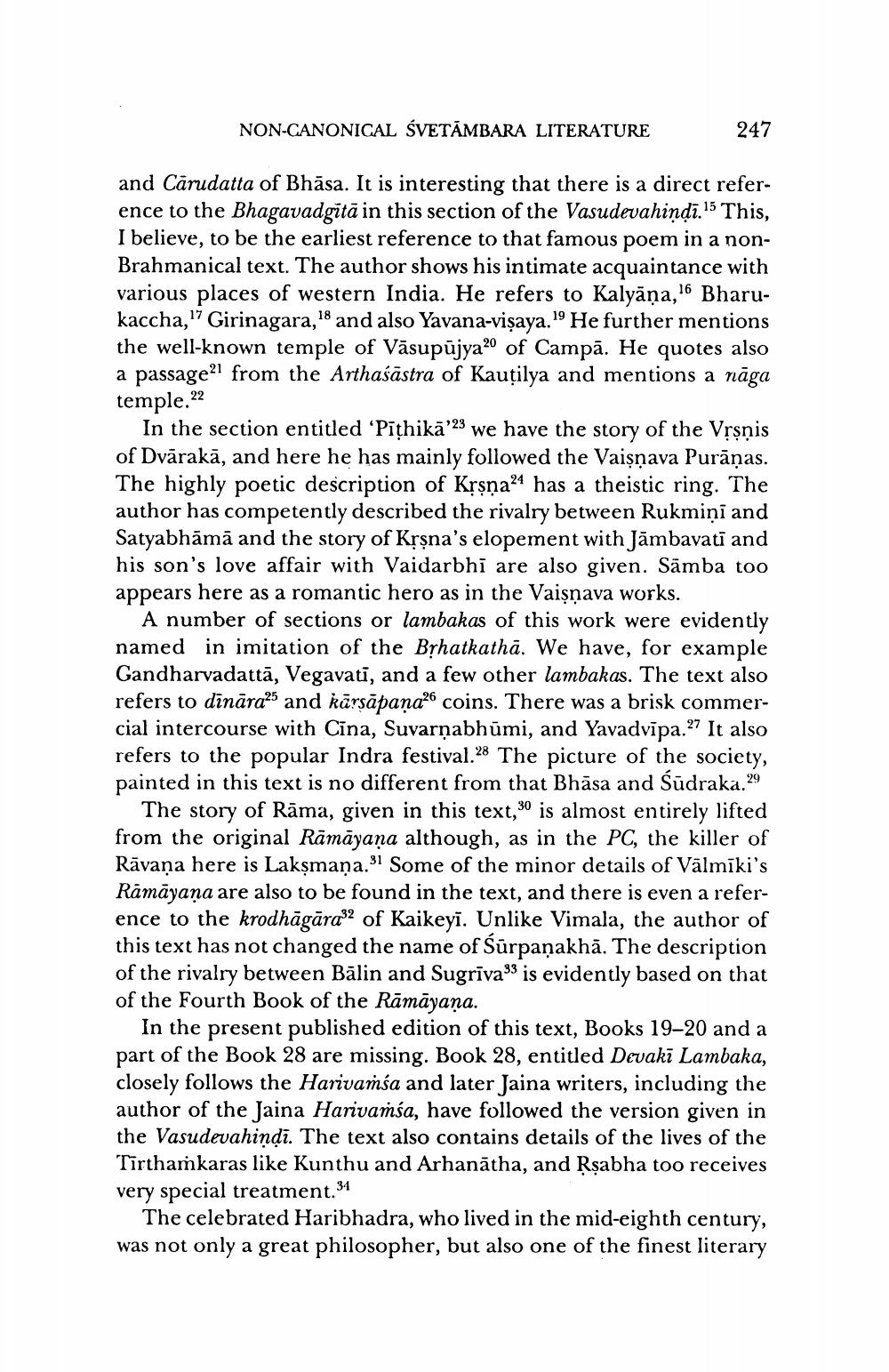________________
NON-CANONICAL SVETĀMBARA LITERATURE
247
and Cārudatta of Bhāsa. It is interesting that there is a direct reference to the Bhagavadgitā in this section of the Vasudevahiņdī.15 This, I believe, to be the earliest reference to that famous poem in a nonBrahmanical text. The author shows his intimate acquaintance with various places of western India. He refers to Kalyāna, Bharukaccha," Girinagara, 18 and also Yavana-visaya.' He further mentions the well-known temple of Vāsupūjya20 of Campā. He quotes also a passage?l from the Arthaśāstra of Kautilya and mentions a nāga temple.22
In the section entitled “Pīļhikā”23 we have the story of the Vrsnis of Dvārakā, and here he has mainly followed the Vaisnava Purānas. The highly poetic description of Krsna24 has a theistic ring. The author has competently described the rivalry between Rukmini and Satyabhāmā and the story of Krşna's elopement with Jāmbavati and his son's love affair with Vaidarbhi are also given. Sämba too appears here as a romantic hero as in the Vaisnava works.
A number of sections or lambakas of this work were evidently named in imitation of the Brhatkathā. We have, for example Gandharvadattā, Vegavati, and a few other lambakas. The text also refers to dināra25 and kārsāpaņa26 coins. There was a brisk commercial intercourse with Cina, Suvarnabhūmi, and Yavadvīpa. 27 It also refers to the popular Indra festival.28 The picture of the society, painted in this text is no different from that Bhāsa and Sūdraka. 29
The story of Rāma, given in this text,30 is almost entirely lifted from the original Rāmāyana although, as in the PC, the killer of Rāvana here is Lakşmaņa.31 Some of the minor details of Vālmīki's Rāmāyaṇa are also to be found in the text, and there is even a reference to the krodhāgāra”? of Kaikeyi. Unlike Vimala, the author of this text has not changed the name of Sūrpanakhā. The description of the rivalry between Bälin and Sugrīva” is evidently based on that of the Fourth Book of the Rāmāyaṇa.
In the present published edition of this text, Books 19-20 and a part of the Book 28 are missing. Book 28, entitled Devakī Lambaka, closely follows the Harivamsa and later Jaina writers, including the author of the Jaina Harivañía, have followed the version given in the Vasudevahindī. The text also contains details of the lives of the Tirthamkaras like Kunthu and Arhanātha, and Rsabha too receives very special treatment. 34
The celebrated Haribhadra, who lived in the mid-eighth century, was not only a great philosopher, but also one of the finest literary




